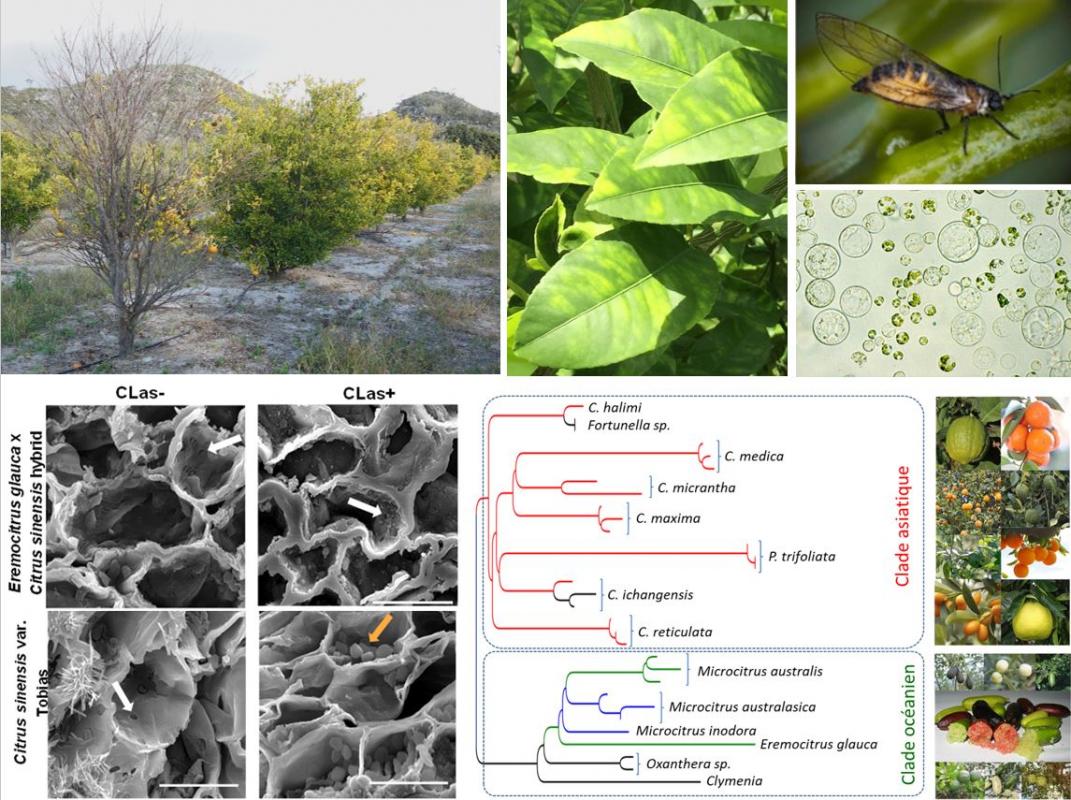- Home
- Worldwide
- CIRAD worldwide
- Projects
- PreHLB project
Preventing the spread of HLB in citrus orchards - PreHLB

© CIRAD
Issues
HLB is considered the most devastating citrus disease. Due to its rapid spread by psyllids and its aggressive symptoms, it causes high economic losses. There are currently no sustainable control mechanisms for this disease.
The disease, caused by Candidatus Liberibacter bacteria, originated in Southeast Asia, and has spread in just over a decade to almost all of the world’s citrus-growing regions. In particular, China, Florida (United States) and Brazil are seriously affected by HLB, and suffer huge economic losses. HLB is now threatening the Mediterranean Basin, with the arrival of one of its vectors(Trioza erytreae) in Portugal and Spain.
Description
The activities of the project are divided into temporal objectives:
- In the short term: implementing preventive actions and tools to limit the risk of the introduction of HLB;
- In the medium term: implementing monitoring and control strategies for HLB. To this effect, 100 000 hectares will be monitored on a regular basis. The goal is to obtain information concerning potential infection and vector dynamics for the disease in high-risk areas. This workstream will build on the development of new detection tools;
- In the long term: developing research on vector biology and host-vector-pathogen interactions in order to create resistant varieties and rootstocks, as well as new tools to control the bacteria and the vector, such as new effectors, biostimulants and biopesticides.
CIRAD (AMAP research unit) is coordinating research in genomics and genetics aimed at using conventional breeding to enhance the biodiversity of citrus-related genera that present strict resistance to the bacteria. In Reunion Island, the PVBMT research unit is conducting research on the transmission of the Asian strain of the bacteria by the African vector present in the Iberian Peninsula.
Expected impacts
- A global emergency response plan will be set up, aimed at protecting citrus growing in Europe from the causal vectors and agents of HLB;
- Through a multidisciplinary approach, new solutions will be developed to manage the disease;
- Collaborative dynamics will be accelerated between European teams and partners in America and Asia with strong expertise in HLB.
Contract partners
- The PreHLB project is conducted by a multidisciplinary consortium led by IBMCP (Spain)
























